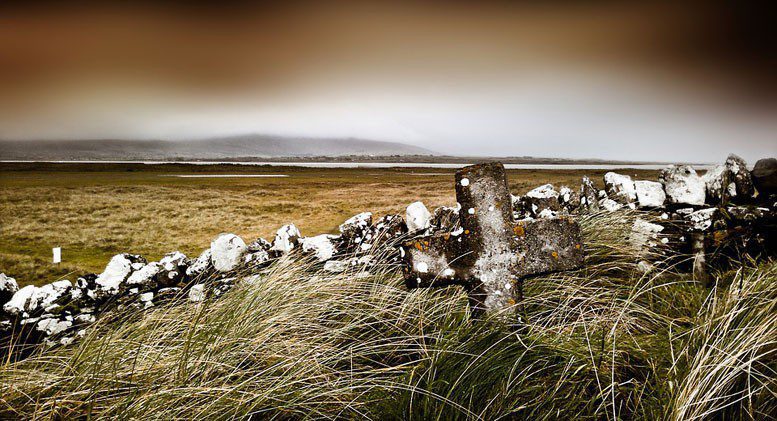
The feast of Saint Odran is celebrated on February 19. He was a disciple of St Patrick and his chariot driver. St Odran was the first Christian martyr in Irish history and the only martyr during the time of St Patrick.
According to the Tripartite Life of Saint Patrick (Vita tripartita Sancti Patricii) St Odran's death, in simpler terms, was a case of mistaken identity but gave up his life to save St Patrick.
When St Patrick arrived in Ireland he went about destroying pagan idols with one of them being Crom Cruach, the chief idol in the Plain of Adoration. Although not much is known about Crom Cruach he was the favorite deity for an Irish chieftain called Foilge Berrad.
When Foilge learned about the destruction of Crom Cruach he became angry and vowed to seek revenge by killing St Patrick. St Odran learned about the threat from Foilge but decided not to warn St Patrick of the immediate danger.
As St Patrick and St Odran traveled throughout the country tiredness set in for St Odran. He requested that his master takes his place so that he could rest before taking back the reins of the chariot, Patrick agreed. They both continued on their journey until Foilge ambushed the chariot. Foilge threw his spear at St Odran, thinking he was St Patrick, pierced his heart and killed him on the spot. Soon after the killing of St Odran, Foilge dropped dead and it was believed he was sent to hell by the almighty God.
Another version of St Odran's death appears in the Pseudo-Historical Prologue to the Senchas Már which describes a test of St Patrick’s faith. It would also be the earliest judgment that conflicted with Christian and pagan laws in Ireland.
The High King of Ireland, Lóegaire mac Néill, was known for his jealousy of St. Patrick's power. He ordered his people to kill one of St Patrick's disciples to test if Patrick himself would grant forgiveness. The High King announced, whoever would take up the request would be greatly awarded.
Mac Néill's nephew, Nuada Derg, was being held in captivity by the King but agreed to kill a disciple if he was released and given the awards as promised. The High-King agreed and ordered his immediate release.
When Nuada Derg was released from captivity he approached the clerics of St Patrick and hurled his lance towards them, striking St Ordan and killing him.
After the slaying, St Patrick approached the Chief Ollam of Ireland, Dubhthach moccu Lughair, and requested Nuada Derg be trailed for the murder of Odran. Dubhthach agreed, he found Nuada guilty of murder and had him executed. The problem with this sentencing was that it went against Brehon laws widely respected in Ireland at the time. Brehon laws shunned capital punishment and murders would usually result in a hefty fine.
sources
Last updated: March 2, 2020
Luke Kelly, an iconic figure in Irish music, left an indelible mark on the folk… Read More
The Wooing of Emer is a captivating tale from Irish mythology that recounts the courtship… Read More
Cú Chulainn stands as one of the most iconic and revered figures in Irish mythology,… Read More
The Boyhood Deeds of Fionn form an integral part of Irish mythology, weaving tales of… Read More